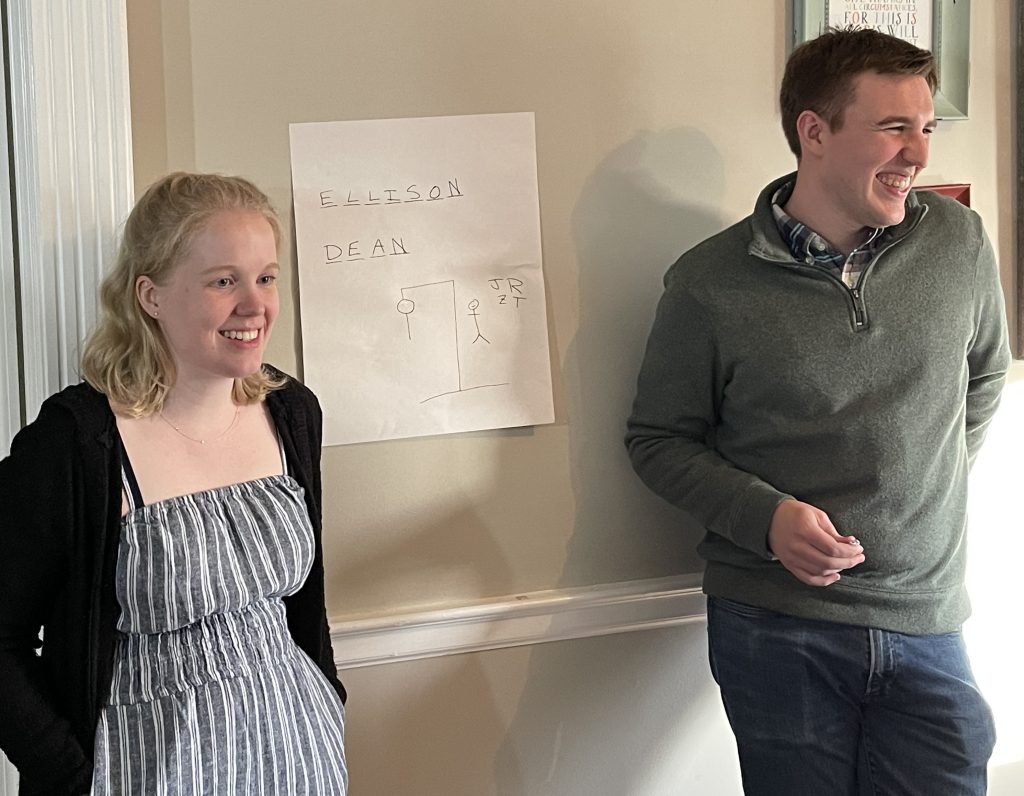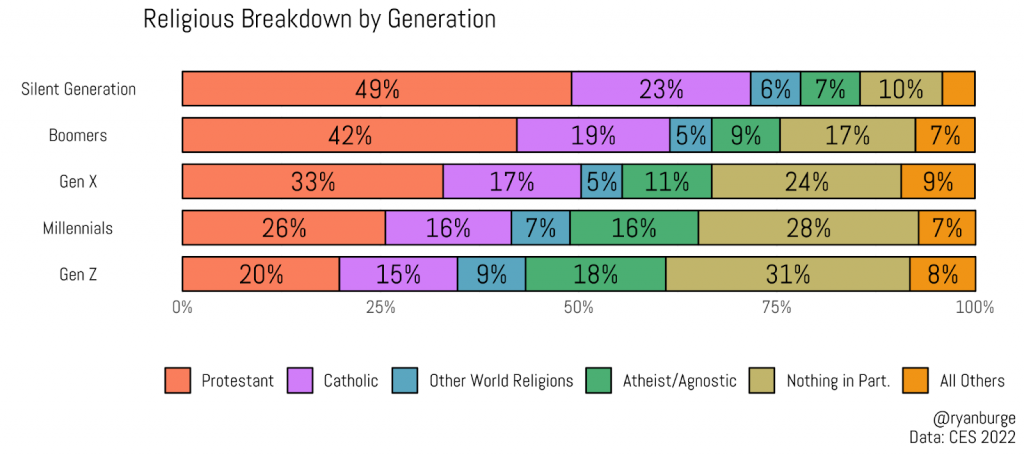
Remembering
God never called us to Make Yesterday Great Again. But he does call us to remember.
The word “remember” is used in Scripture more than 150 times. When the Bible speaks about remembering, the kind of memory to which it most frequently refers is akin to muscle memory. When you jump on a bike after not riding for years, and your mind and body instantly recall how to balance and pedal as if you’d just done so yesterday, you’re tapping into the way in which we are invited to remember.
The active, present, and all-encompassing nature of remembering in the Bible is captured in the core realities that God remembers his covenant with his people and God expects his people to remember and do what God has commanded. Remembering is a function of a relationship. When we remember Jesus through wine and bread shared together at the table, we are invited to experience it as though we are sitting with him at the final meal he shared with his friends. The Bible doesn’t invite us to recall a set of data points about Jesus when we come to the communion table but to participate with him who is Immanuel, God with us here and now.
https://www.fathommag.com/stories/noxious-nostalgia
Briar patch?
In the most famous Uncle Remus story—one that appears in countless versions in cultures around the world, including one from the Apache involving their trickster hero, Coyote—the malicious Br’er Fox makes a doll out of tar (the “tar baby”) and places it in Br’er Rabbit’s path. Br’er Rabbit becomes offended when the creature doesn’t respond to his friendly greeting and lashes out at it, only to find himself stuck to it—and the more he struggles the more firmly stuck he becomes. Then, entangled and exhausted, he is at Br’er Fox’s mercy. And this is when he makes one final plea to his tormentor: Do anything to me, he says, but don’t throw me in that briar patch. Anything but that. Naturally, Br’er Fox, mean creature that he is and nemesis to the rabbit, tosses him right into the briar patch—which is just what enables the victim to detach himself from the tar baby. So Br’er Rabbit taunts Br’er Fox: This might be a place of pain to other animals, but I was born and bred in the briar patch!
An affirmative disposition toward all obstacles—this is the blues idiom in a phrase. Resistance and affliction as the necessary engines of creativity.
Here is where Cosmos Murray comes to our aid. What it contributes is the idea of “an affirmative disposition towards all obstacles,” specifically because obstacles are occasions for improvisation—occasions for living with style, making artful living from the unpromising materials of pain. You can think yourself mistreated, think yourself the object of scorn, and become “the lamenting, protesting, perpetually pissed-off rebel”—the course taken by so many white Christians online—or you can strive to cultivate a “resilience that is geared to spontaneous exploration, experimentation, inventiveness, and perpetual readjustment.” If you take the latter course, then the world can become your briar patch too: Every way that you are thwarted, every obstacle that prevents you continuing in your old familiar habits, can become an occasion for “spontaneous exploration,” for doing old things in a new way—for, in short, living by faith rather than by your own sense of entitled comfort. And if you do that, then even in dark days you have a pretty fair chance of letting the good times roll.
https://comment.org/the-blues-idiom-at-church/
Sunbelt Nation
The Brookings Institution demographer William Frey has noted that in 1920, the Northeast and the Midwest accounted for 60 percent of America’s population. A century later, the Sunbelt accounts for 62 percent of the nation’s population. These days we are mostly a Sunbelt nation.
David Brooks
Evangelical Moderates
“the evangelical moderate” and the moderate was not an activist on the racial divide. Here are his words to sum up the moderate: “although earlier fundamentalists might have been more explicitly and unashamedly open with their racism, the evangelical moderate remained content to denounce only the most overt and blatant kinds of racial prejudice, to equivocate on the inevitability or necessity of segregation, to vehemently oppose “forced integration,” and to ignore, critique, or explicitly condemn the burgeoning Civil Rights Movement and its leaders.” There was no room “for systemic analyses or governmental interventions.”
Isaac B. Sharp -The Other Evangelicals
Baby Names

Recently we enjoyed the privilege of learning the name chosen for our next great grandchild. Ellison Dean .
Very thoughtful and reflective of his heritage, I appreciated their choice even more when I read about Elon Musk’s children’s names.
On May 4, 2020, Musk announced the birth of their son, who he and Grimes named “X Æ A-Xii Musk,” seemingly pronounced “X Ash A-12.” “Mom & baby all good,” Musk wrote on Twitter.
But the pair continued to co-parent, and in March 2022, Grimes revealed in a Vanity Fair interview that the couple had secretly had a baby girl via surrogate named Exa Dark Sideræl Musk.
Grimes said “Exa” is a reference to the supercomputing term exaflops, “Dark” is about the unknown, and “Sideræl” is an “elven” spelling of sidereal, meaning “the true time of the universe,” pronounced “sigh-deer-ee-el.” Grimes and Musk call her Y for short.
Rule of Life
How we spend our days is, of course, how we spend our lives. What we do with this hour, and that one, is what we are doing. A schedule defends from chaos and whim. It is a net for catching days. It is a scaffolding on which a worker can stand and labor with both hands at sections of time…it is a peace and a haven set into the wreck of time; it is a lifeboat on which you find yourself, decades later, still living.
Annie Dillard
As Dillard says, how we spend our days will be, in the end, how we spend our lives. Intentionality, practiced through a rule of life, defends from chaos and whim, creating a net that catches our days and a lifeboat on which we find ourselves, decades later, still living.
If you’re wondering about what a rule of life might look like, beyond fixed hour prayer practices, you might check out The Common Rule or Crafting a Rule of Life.
Richard Beck
The Life of J D Green
“Why was I born black? It would have been better had I not been born at all. Only yesterday, my mother was sold to go to, not one of us knows where, and I am left alone, and I have no hope of seeing her again. At this moment a raven alighted on a tree over my head, and I cried, ‘Oh, Raven! if I had wings like you. I would soon find my mother and be happy again.’ Before parting she [i.e. Mother] advised me to be a good boy and she would pray for me, and I must pray for her, and hoped we might meet again in heaven, and I at once commenced to pray, to the best of my knowledge, ‘Our Father art in heaven, be Thy name, kingdom come. – Amen.’ But, at this time, words of my master obtruded into my mind that God did not care for black folks, as he did not make them, but the devil did. Then I though of the old saying amongst us, as stated by our master, that, when God was making man, He made white man out of the best clay, as potters make china, and the devil was watching, and he immediately took some black mud and made a black man, and called him a N****R.” [I have partially omitted the last offensive term].
Dying Young
How long a person can expect to live is one of the most fundamentally revealing facts about a country, and here, in the richest country in the world, the answer is not just bleak but increasingly so. Americans are now dying younger on average than they used to, breaking from all global and historical patterns of predictable improvement. They are dying younger than in any peer countries, even accounting for the larger impact of the pandemic here. They are dying younger than in China, Cuba, the Czech Republic or Lebanon.
You may think this problem is a matter of 70-year-olds who won’t live to see 80 or perhaps about the so-called deaths of despair among white middle-aged men. These were the predominant explanations five years ago, after the country’s longevity statistics first flatlined and then took a turn for the worse — alone among wealthy nations in the modern history of the world.
But increasingly the American mortality anomaly, which is still growing, is explained not by the middle-aged or elderly but by the deaths of children and teenagers. One in 25 American 5-year-olds now won’t live to see 40, a death rate about four times as high as in other wealthy nations. And although the spike in death rates among the young has been dramatic since the beginning of the pandemic, little of the impact is from Covid-19. Over three pandemic years, Covid-19 was responsible for just 2 percent of American pediatric and juvenile deaths.

View from the front porch
Gen Z religion

Generation Z is the least religious generation in American history. And, they are becoming less religiously identified as each year passes. Every day in the United States, thousands of members of the Silent and Boomer generation are dying off. Every day in the United States, thousands of members of Generation Z are celebrating their 18th birthday and becoming official adults. That simple fact is changing American religion and society in ways that we can only begin to understand now.
STILL ON THE JOURNEY